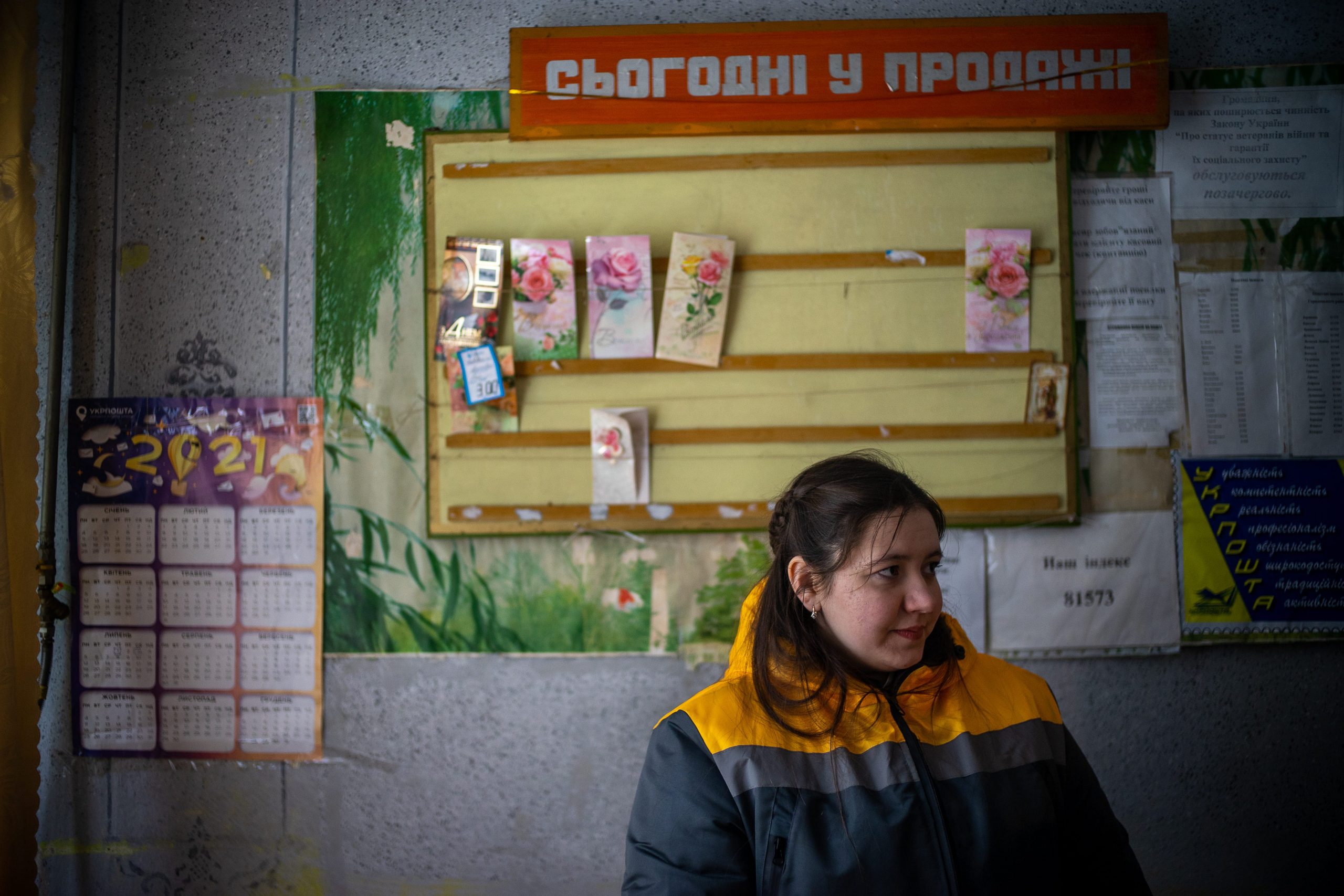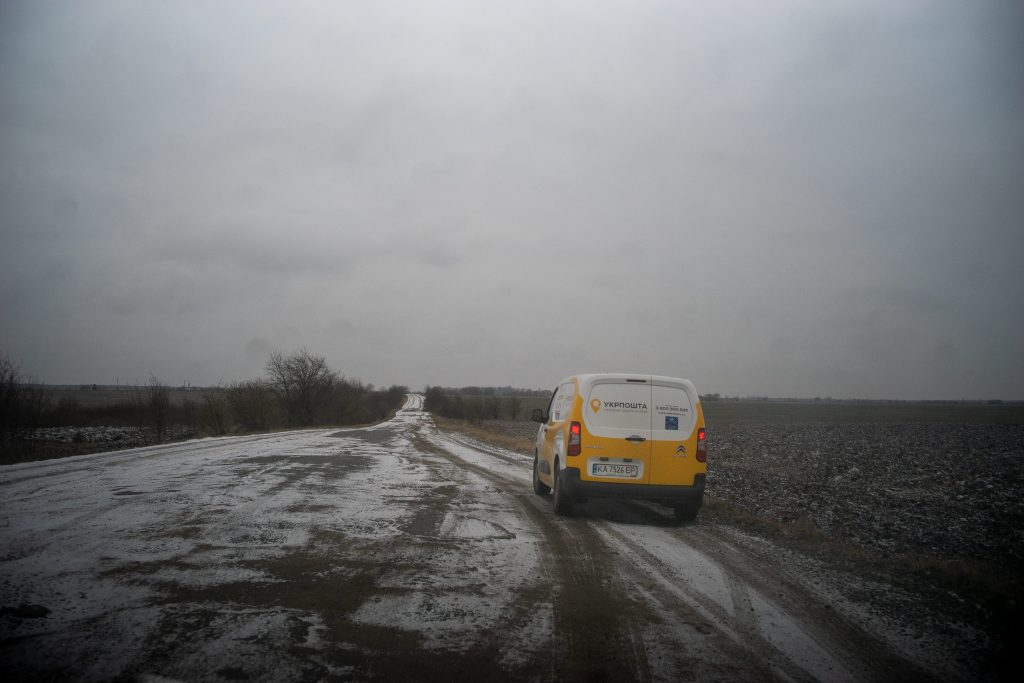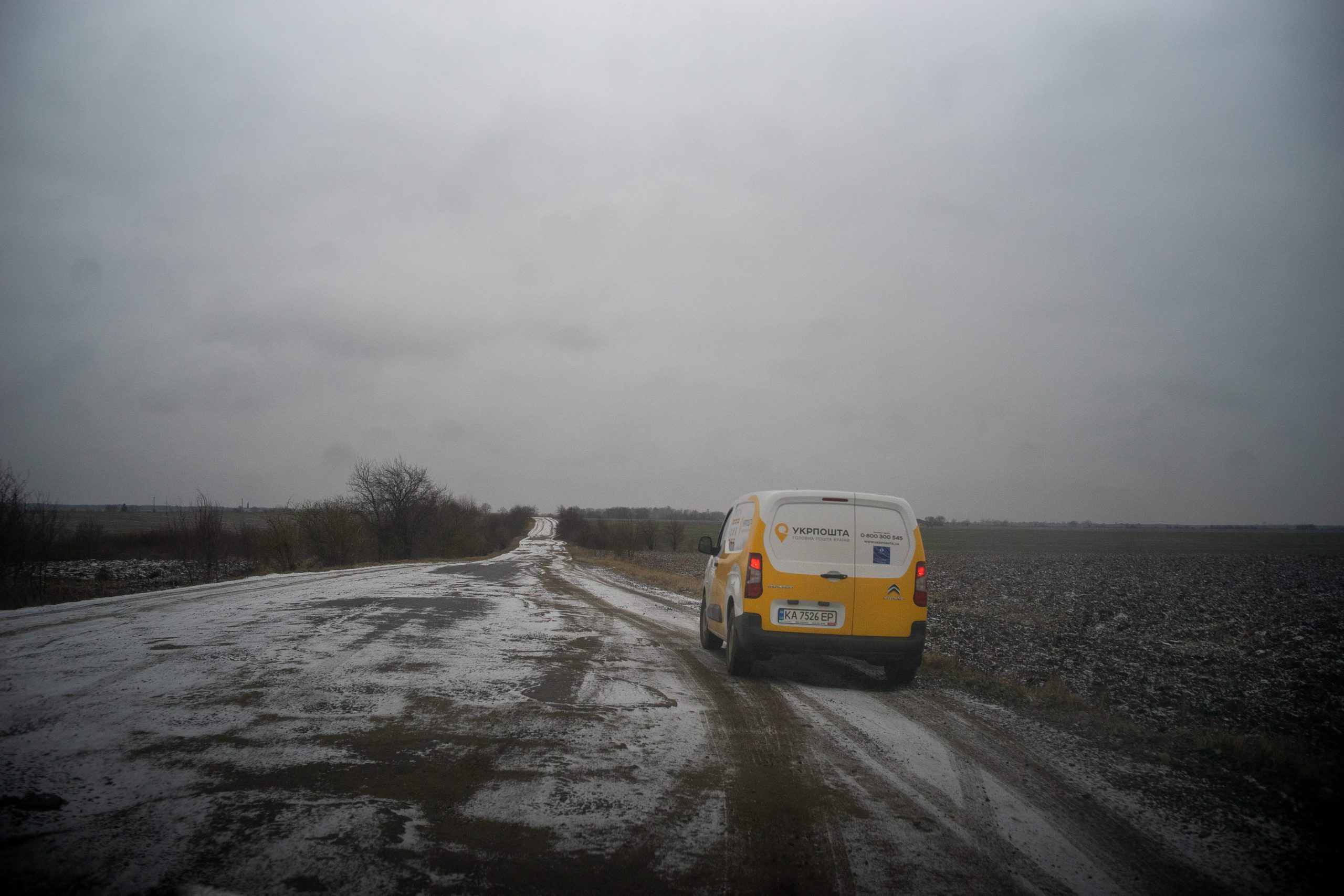
- Ukrposhta, Ukraine's postal service, delivers cash pensions to 3.5 million retirees every month.
- Its CEO, Igor Smelyansky, is rumored to be on a Russian kill list.
- Photographer Alan Chin accompanied postal workers in western Ukraine.
Novoiavorivsk, Ukraine – The normal operations of Ukrposhta, Ukraine's national postal service, came to a screeching halt in the predawn hours of Feb. 24 when the first Russian bombs and missiles struck Ukraine.
Igor Smelyansky, its CEO, was told he was on Putin's kill/capture list of key Ukrainian leaders. That first morning, after being awoken by phone calls, he "went to the office, got my computer, and destroyed sensitive data." Since then, he's been on the move from one undisclosed location to another, running Ukrposhta's operations with a phone and a laptop, in constant communication with his teams.
If it seems surprising that a postmaster might be designated a high-priority target for an invading enemy, consider that Ukrposhta has over 3,000 vehicles and several airplanes, 60,000 workers including 4,000 who are armed, and over 10,000 post offices. Some of Ukrposhta's trucks are now on loan to the army, and others have been used to carry food and medicine in what Smelyansky calls the "humanitarian bridge from Slovakia, Poland, Romania, and Poland."
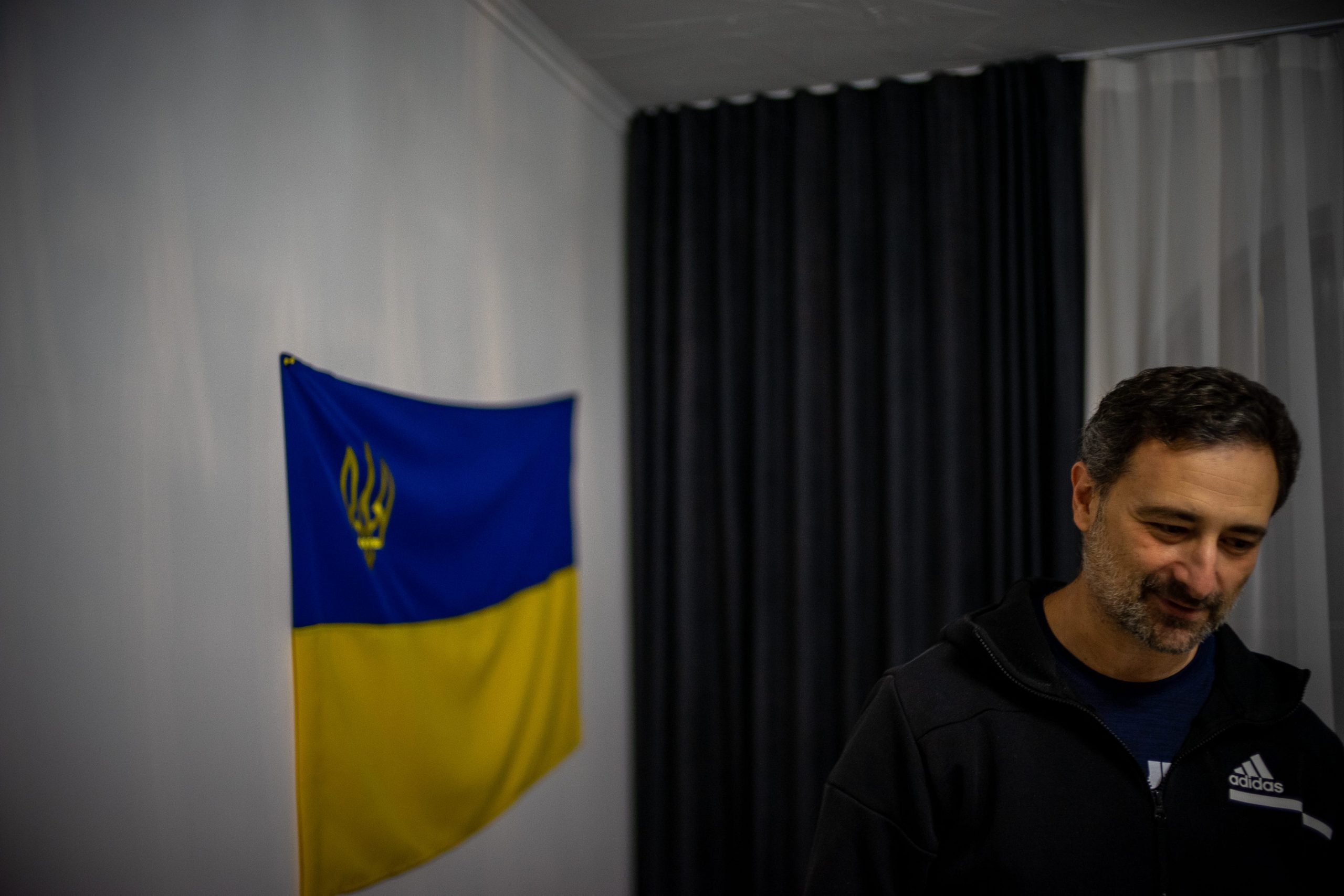
Smelyansky's focus has been keeping up deliveries of cash pensions to 3.5 million elderly retirees – by hand, to their homes, every month. Ten days into the Russian invasion, over a million senior citizens – one of the most vulnerable demographics – hadn't gotten their expected payments or medications.
Nearly a third of Ukraine's 44 million people – 13 million Ukrainians – live in some 27,000 rural villages. There are very few banks in these areas and, even if residents do have bank accounts, they can't get to a branch easily, especially if they're elderly. The pension money is delivered on a rolling basis throughout the month, with retirees getting their payments on different days. Since the Covid-19 pandemic began, Ukrposhta has also been delivering prescriptions from pharmacies. Because there aren't many stores either, Ukrposhta also sells and delivers food at prices that are subsidized by the state.
Beyond that, Ukrposhta holds up a considerable slice of Ukraine's economy. Since Ukrposhta launched e-commerce classes to teach small artisans how to sell on eBay, Amazon, Etsy, and other platforms, that business has grown to half a billion dollars a year for Ukraine.
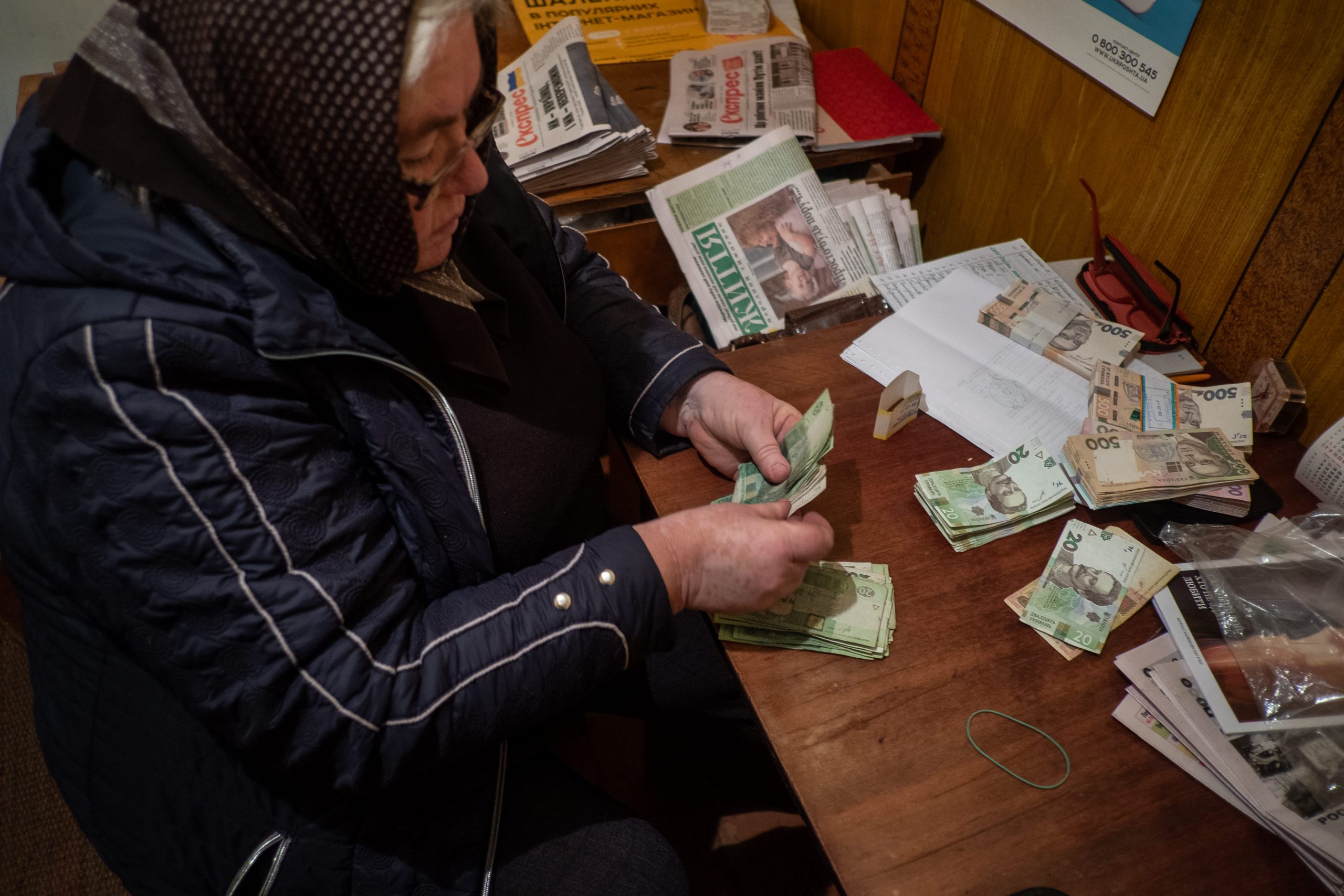
Smelyansky knew that Ukrposhta had to act fast to catch up.
"Before, we knew where everyone lived," he explained. With so many people displaced by the fighting, "we created a hotline for them to call and let us know where they are, and we'll bring the money to them." They restarted the essential disbursements on March 5.
Smelyansky, who's headed Ukrposhta since 2016, grew up on the Black Sea coast in Ukraine's third largest city of Odessa. As CEO, he exudes the progressive pro-Western rhetoric and values that Ukraine aspires to embrace. All of Ukrposhta's top managers including Smelyansky wear T-shirts rather than suits in their official photos. "The head of even the largest company is not a tsar," Smelyansky said. "Anybody can talk to me."
He spent 10 years in New York City. After graduating from Pace University in Lower Manhattan, he worked a few blocks away at the financial services firm Cantor Fitzgerald on the 101st floor of the World Trade Center. He was lucky not to be there when the Sept. 11, 2001, terrorist attacks killed over 600 of his former colleagues, because he had quit not long before to go to law school.
Not long ago, Smelyansky was reviewing plans for a postal bank, or even to take Ukrposhta private. But violence and war have caught up to him again with the Russian invasion of Ukraine.
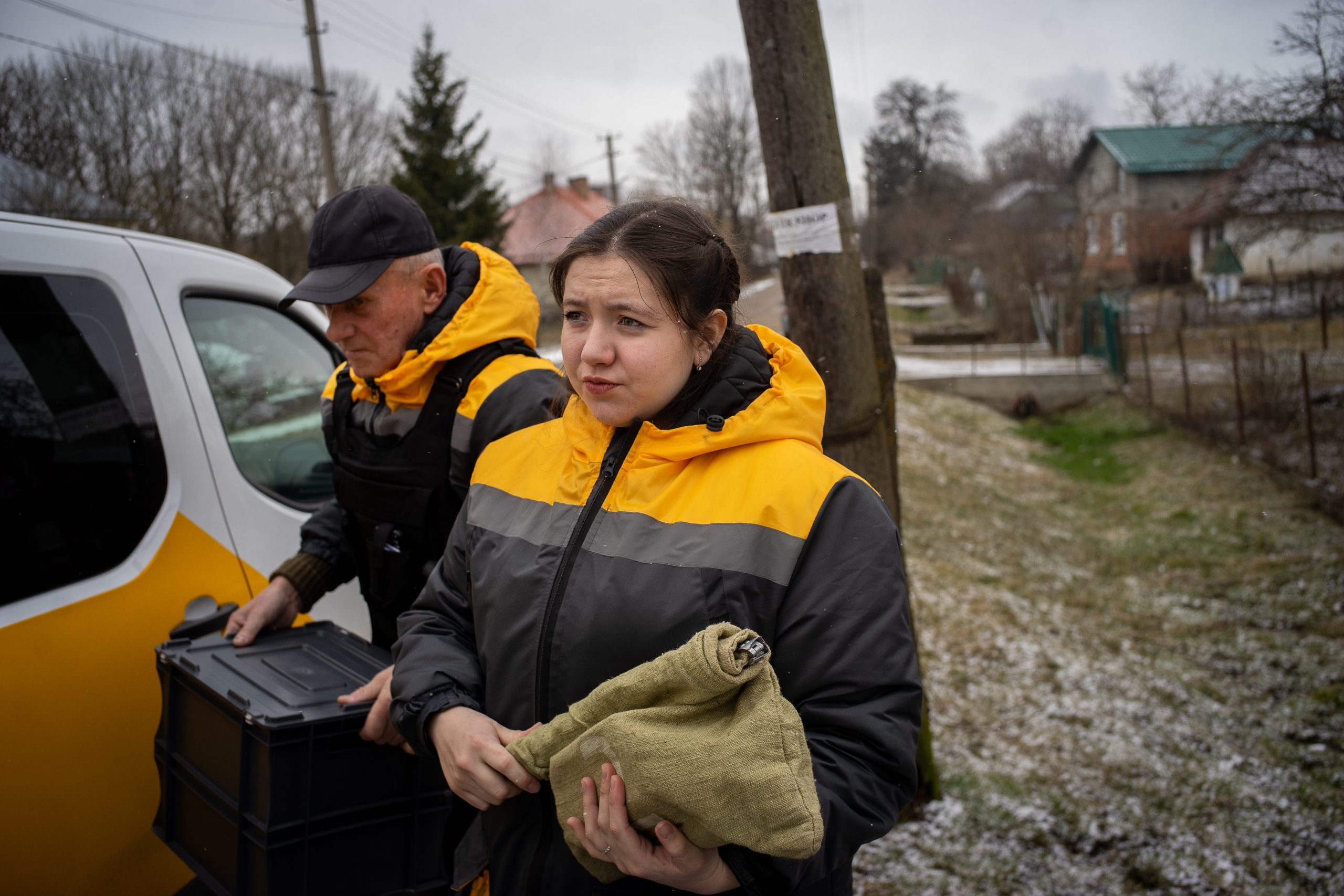
At 21, Maria Lukashevych is the youngest employee at the Novoiavorivsk post office, which sits on the main road between the western city of Lviv and the Polish border. She started just three months ago after graduating from college. "Everybody else has grandchildren my age," she said of her colleagues.
Riding in one of Ukrposhta's new white and yellow vans, she's in charge of servicing four small post offices in villages spread out across the region's countryside, accompanied by an armed driver. "I didn't even want to know how much money we carry! But now I'm not so scared," she said, and displayed the pepper spray that she carries in her jacket pocket. Typically, the van sallies forth every morning with stacks of newspapers for subscribers, bags of groceries, as well as parcels and letters.
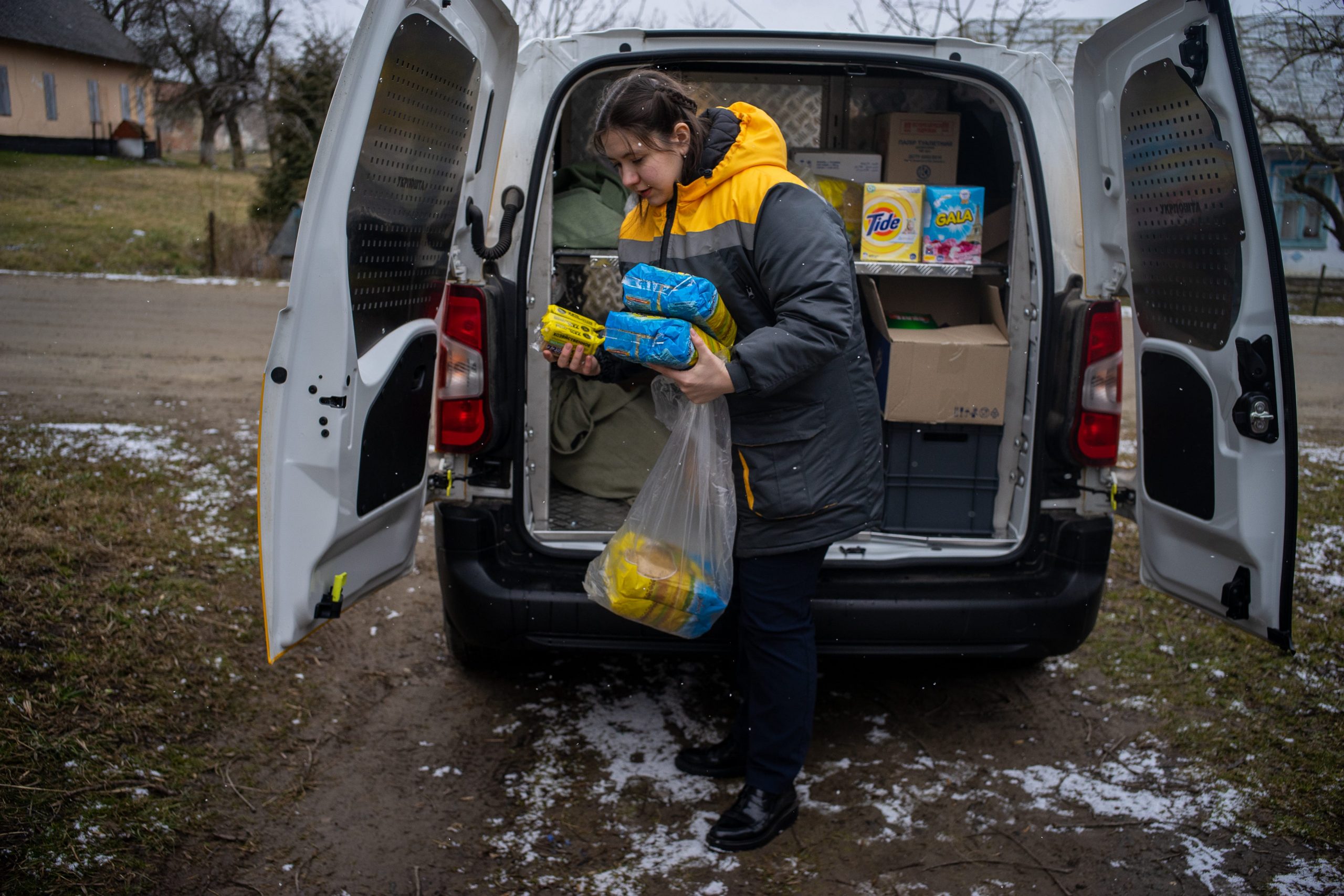
"In all of these villages, there are men who've gone to the front, a lot of guys my age and even younger than me. Friends too," Lukasevych said. She's also seen people taking in people displaced from fighting and shelling in the east. "A lot of people have left, but even more stayed… Where are we going to go?"
"We just pray morning, afternoon, and night," she said.
This past Saturday, Lukashevych's first stop was the village of Tulyholove, which is reached only down dirt roads. At the post office, Lukashevych greeted her colleague, Olga Hrushetska, and started handing over everything for Hrushetska to distribute.
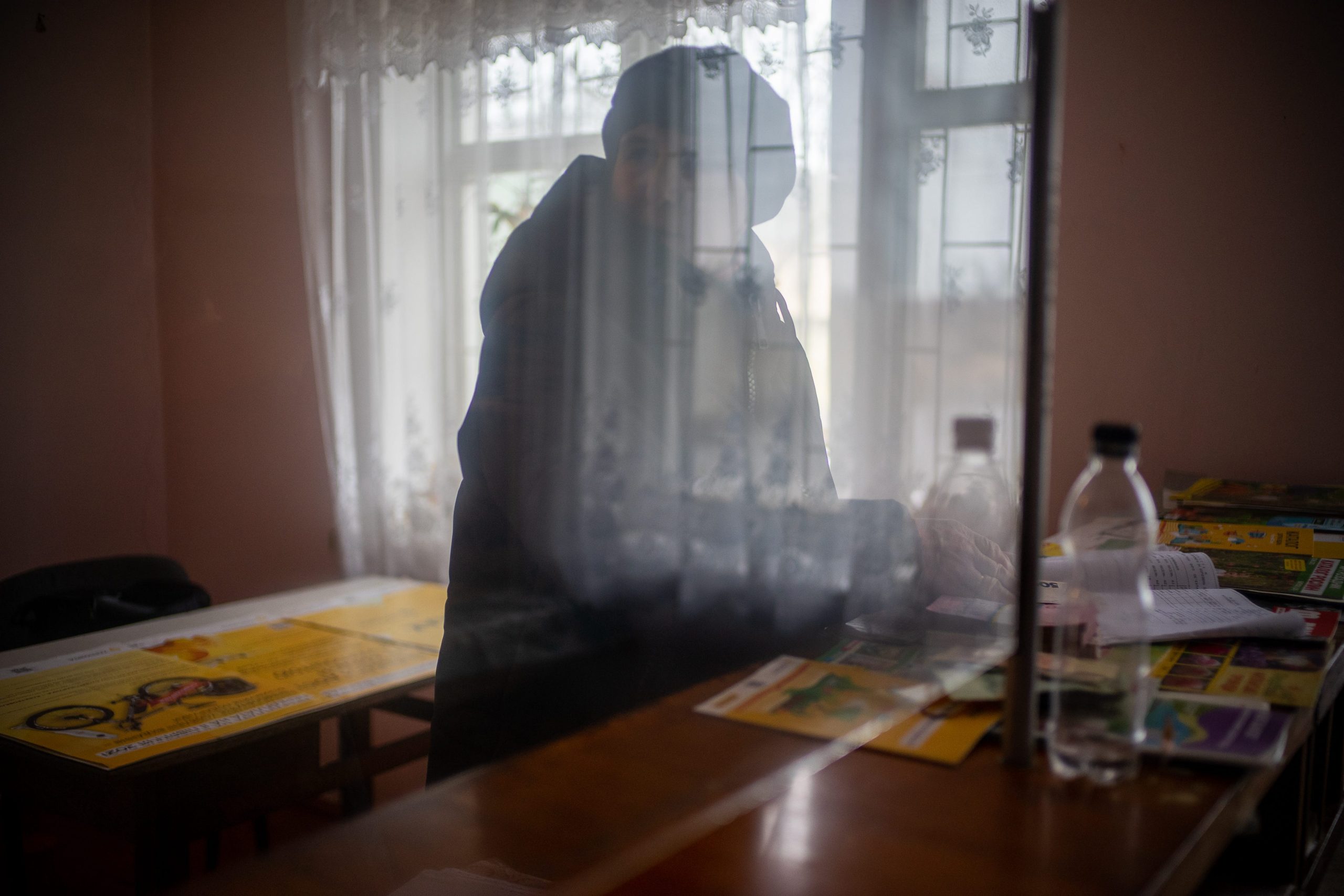
Hrushetska has been working part-time as a mail carrier for 10 years after getting laid-off from a factory that makes leather handbags. Her postal salary wouldn't be enough to make ends meet on its own, and she and her family also grow potatoes, beets, and cabbage, and have a cow, pigs, ducks, and chickens.
Stefa Viyents, a 71-year-old retired hospital worker, walked into the office. She had seen the van arrive and didn't want to wait to collect her pension money.
"My son was in the army and died in a training accident," she said, "so my husband and I together receive 4351 hrivnas (approx. $145) a month." When asked if that was enough for their needs, she replied, "it has to be enough. We pay 2500 (approx. $83) for gas alone. The only extra we get is on the 1st of May (Labor Day) when we get another 800 (approx. $27) for the loss of our son."
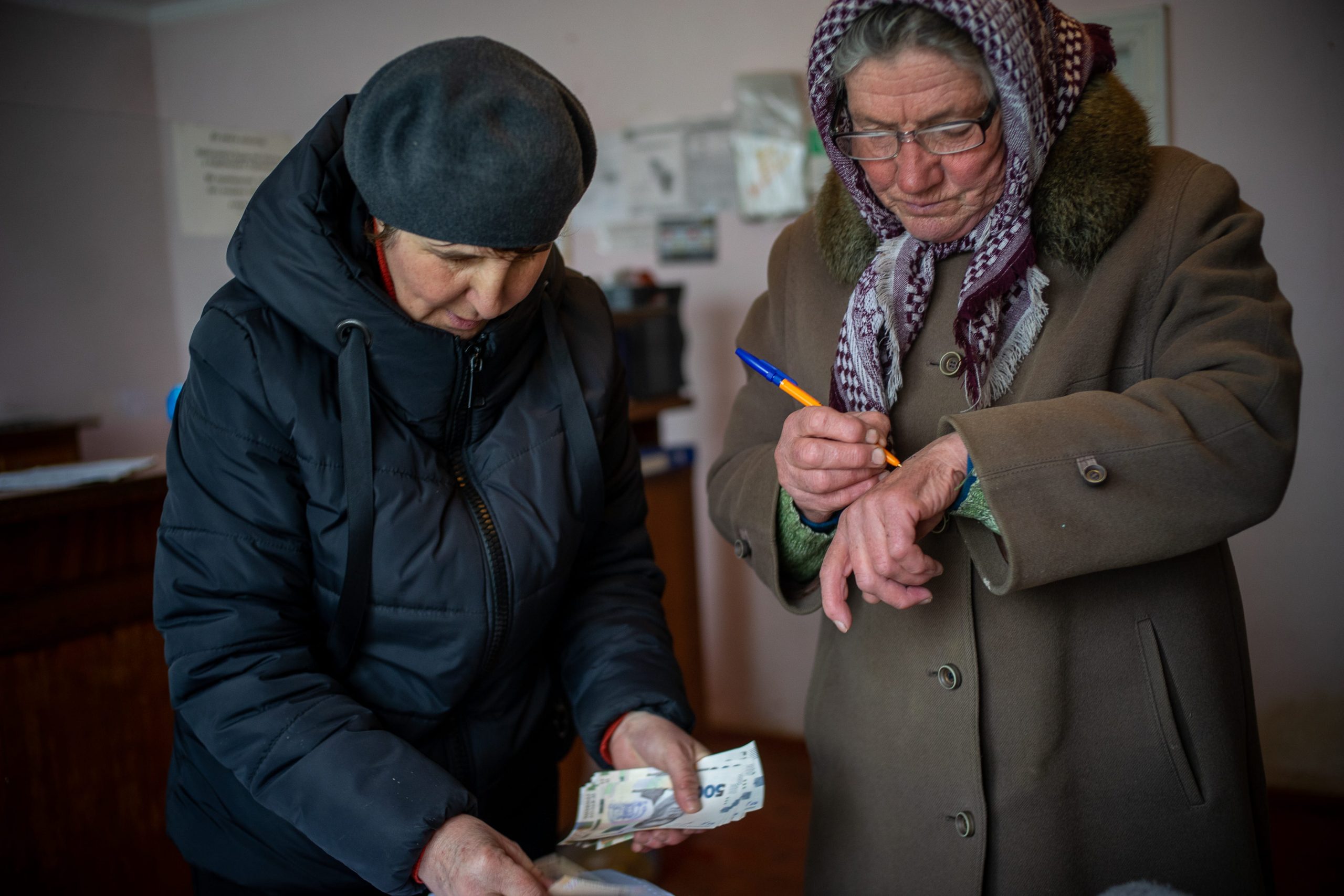
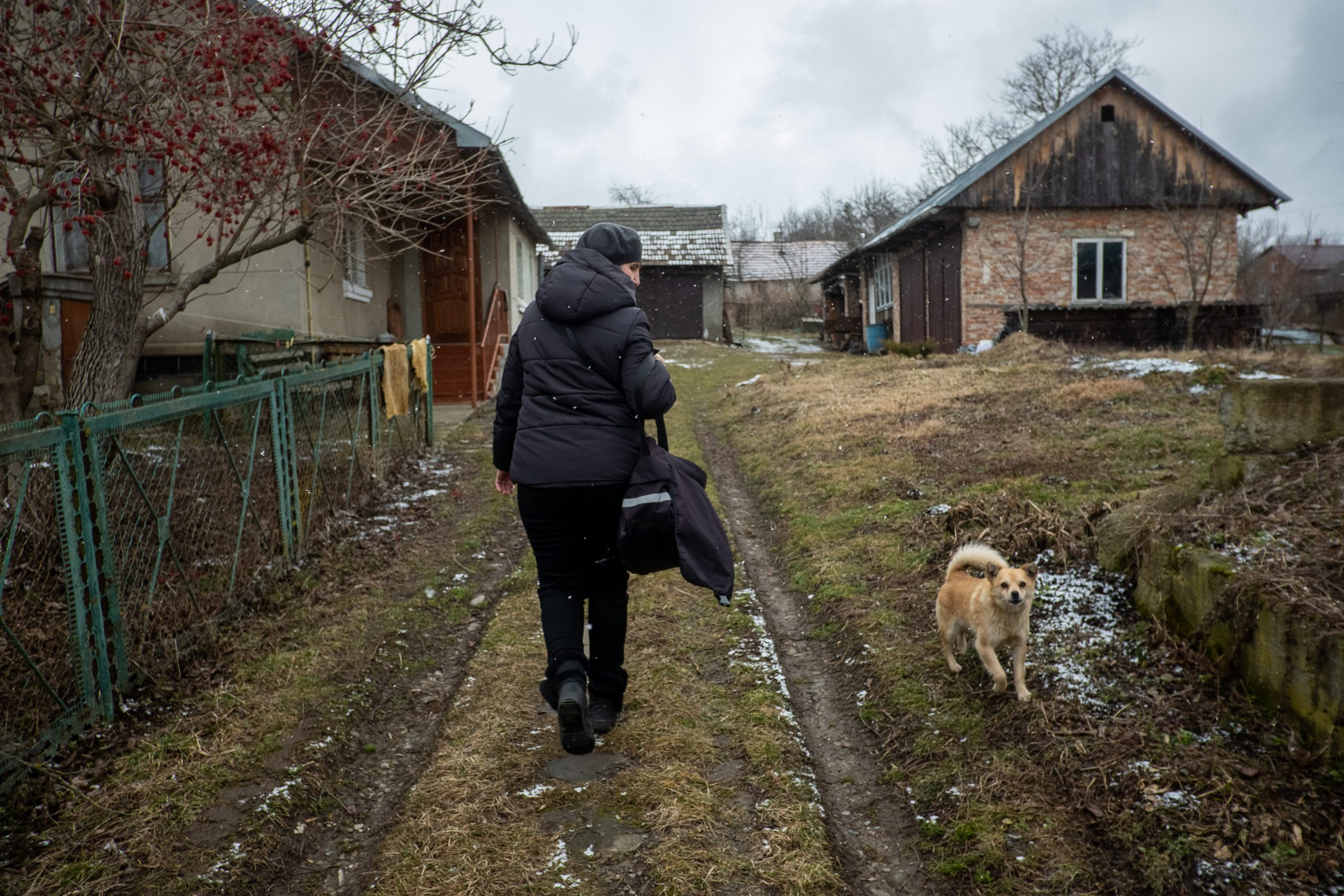
After Viyents signed for her payment and counted the bills, Hrushetska started walking her route. Village dogs wary of strangers were affectionate with her.
As cities to the east, like Kharkiv and Izyum and the capital Kyiv, get pounded by Russian shelling, things feel relatively normal here. At least for now.
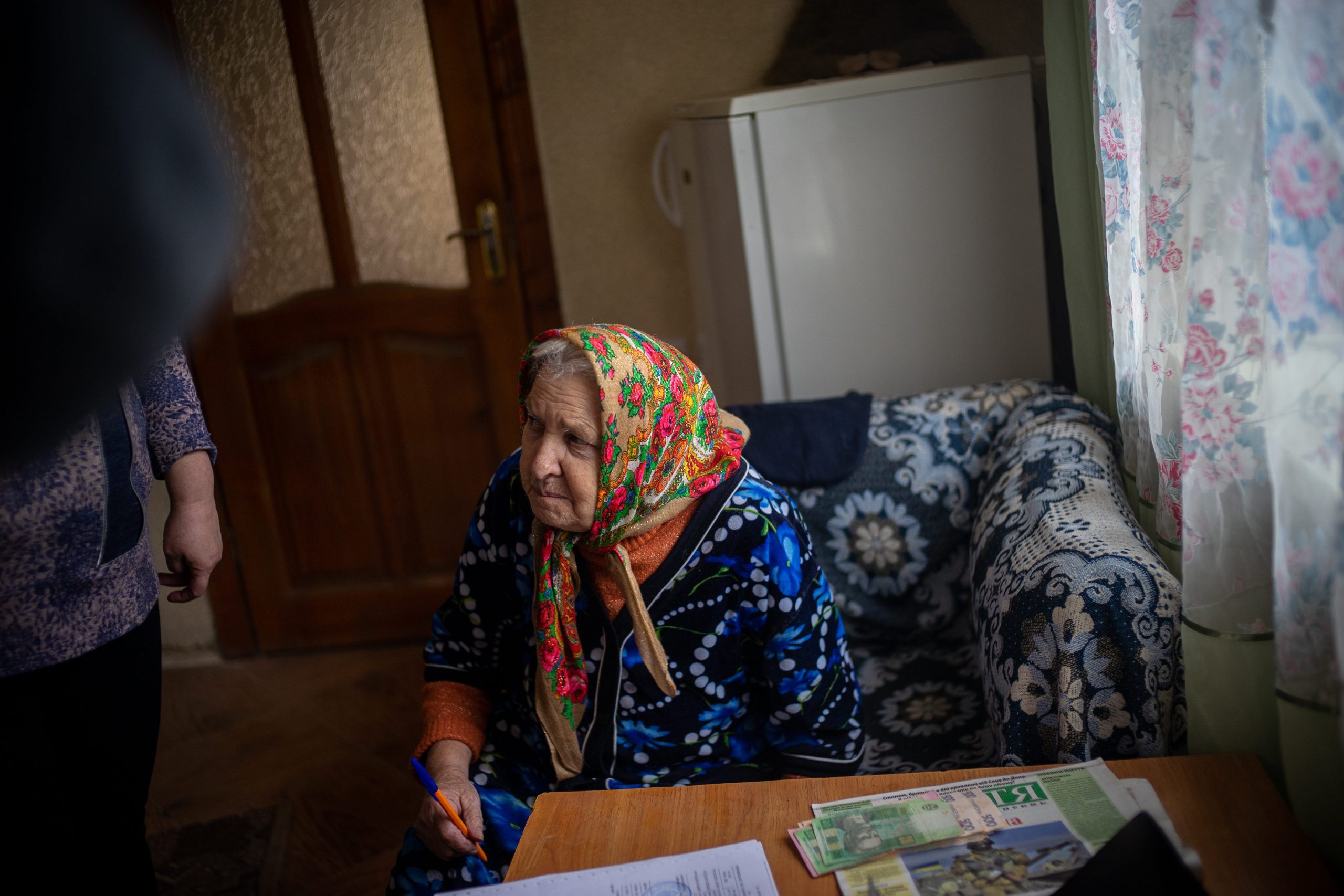
Yosyfa Zuzbida, who as an infant survived the German invasion of 1941, received a pension, a newspaper, and some bags of pasta. She lives with her daughter and grandchildren in a house on Tulyholove's main road, and they haven't given much thought to leaving.
Luidmyla Pyshko, who's 71 and a retired nurse, has been mulling over what to do. "My relatives told me to go to Poland, but I don't want to go," she said. "Thank God that we have peace and quiet here."
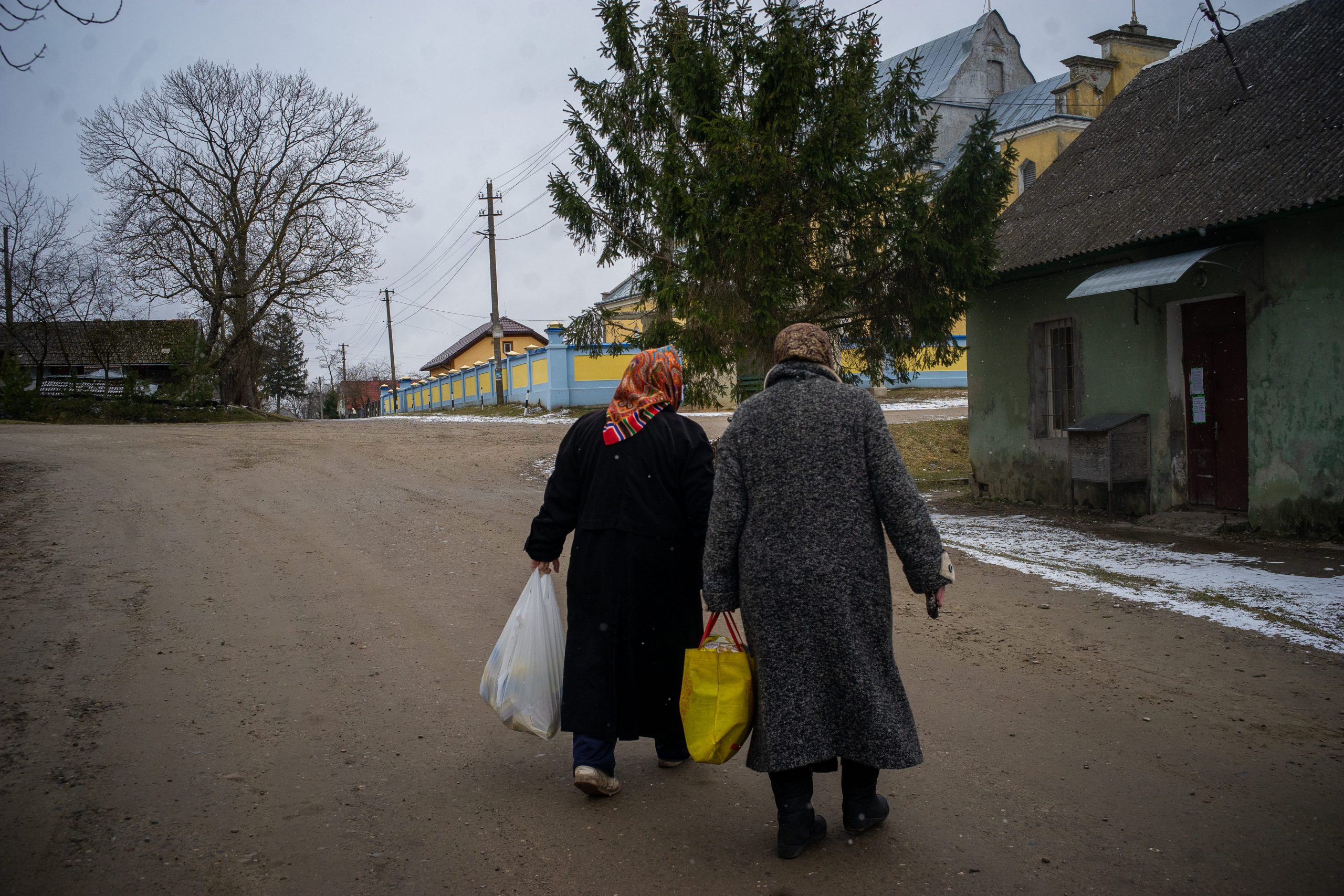
Petro Shypka, Ukrposhta's regional chief (and Lukashevych's boss) said that before the war started, they had lots of plans. With new vans, even remote villages had become more accessible. "We were also planning new distribution centers, modern and fast. Internet in village post offices. Further mechanization and automation with computers," he said. "People used to complain about the post office all the time, reproaching us. Now I see more and more people using Ukrposhta because they're more confident in our services."
Now, assuming that Ukraine emerges intact from the Russian assault, he said the budget will most likely go to repairing what the Russian attacks have destroyed.
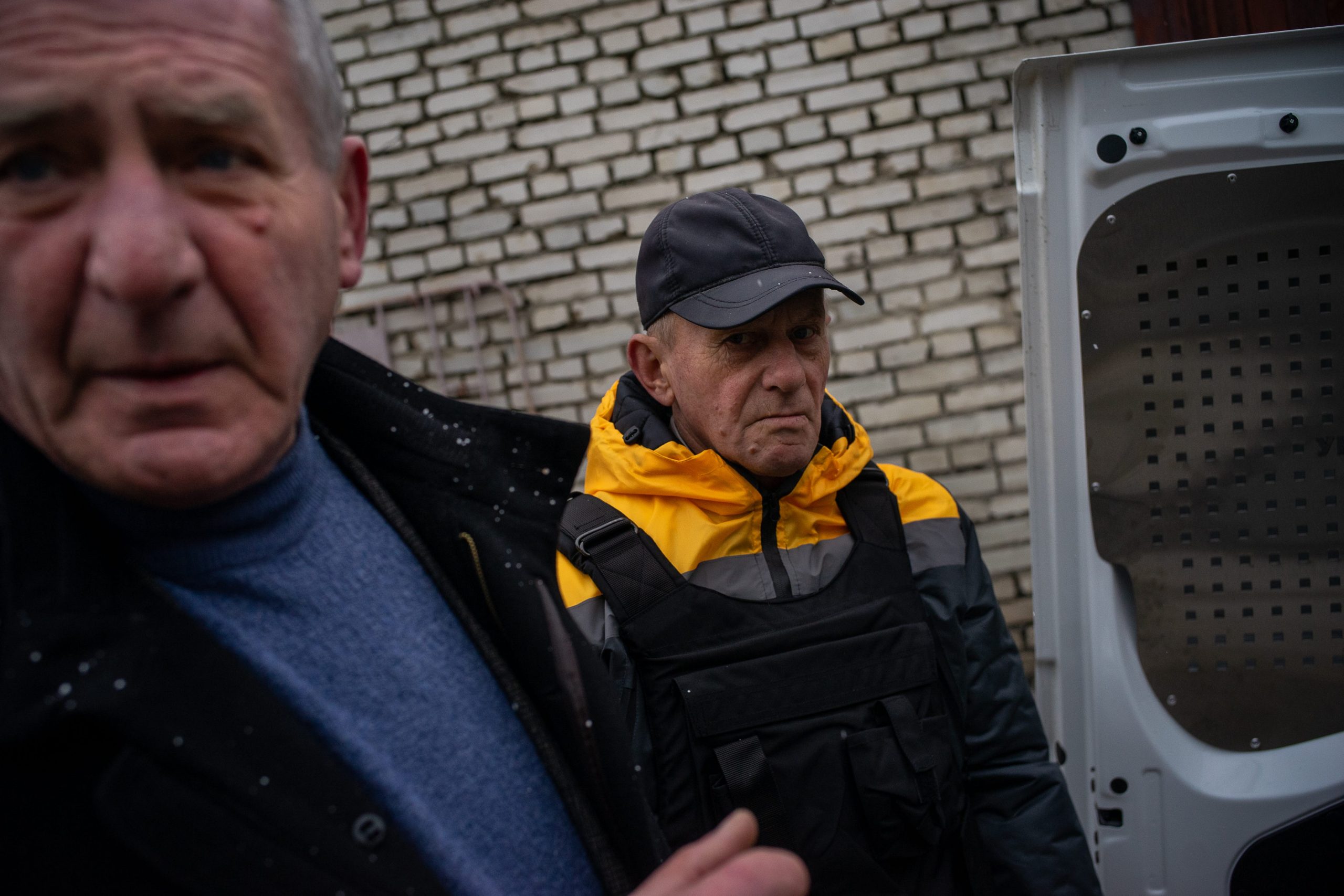
A few days ago, a rumor started circulating that a reserve officer named Serhiy Chyzhikov – mobilized from his civilian job at Ukrposhta – had shot down a Russian fighter jet that was bombing the city of Chernihiv with a 30-year-old shoulder launched anti-aircraft missile. The online memes and jokes sprang up: "Ukrainian postmen always deliver on time," and "Was that the Avengers? No! It's the post office!" Even Ukraine's Minister of Defense Oleksiy Reznikov has referred to "some managers of Ukrposhta who shoot down aircraft." True or not, wartime always has its dark humor, too.
There isn't yet a count of how many postal workers have been killed and wounded by Russian attacks while on the job. In cities under direct artillery and rocket fire, "I have employees in bomb shelters," said Smelyansky, the CEO.
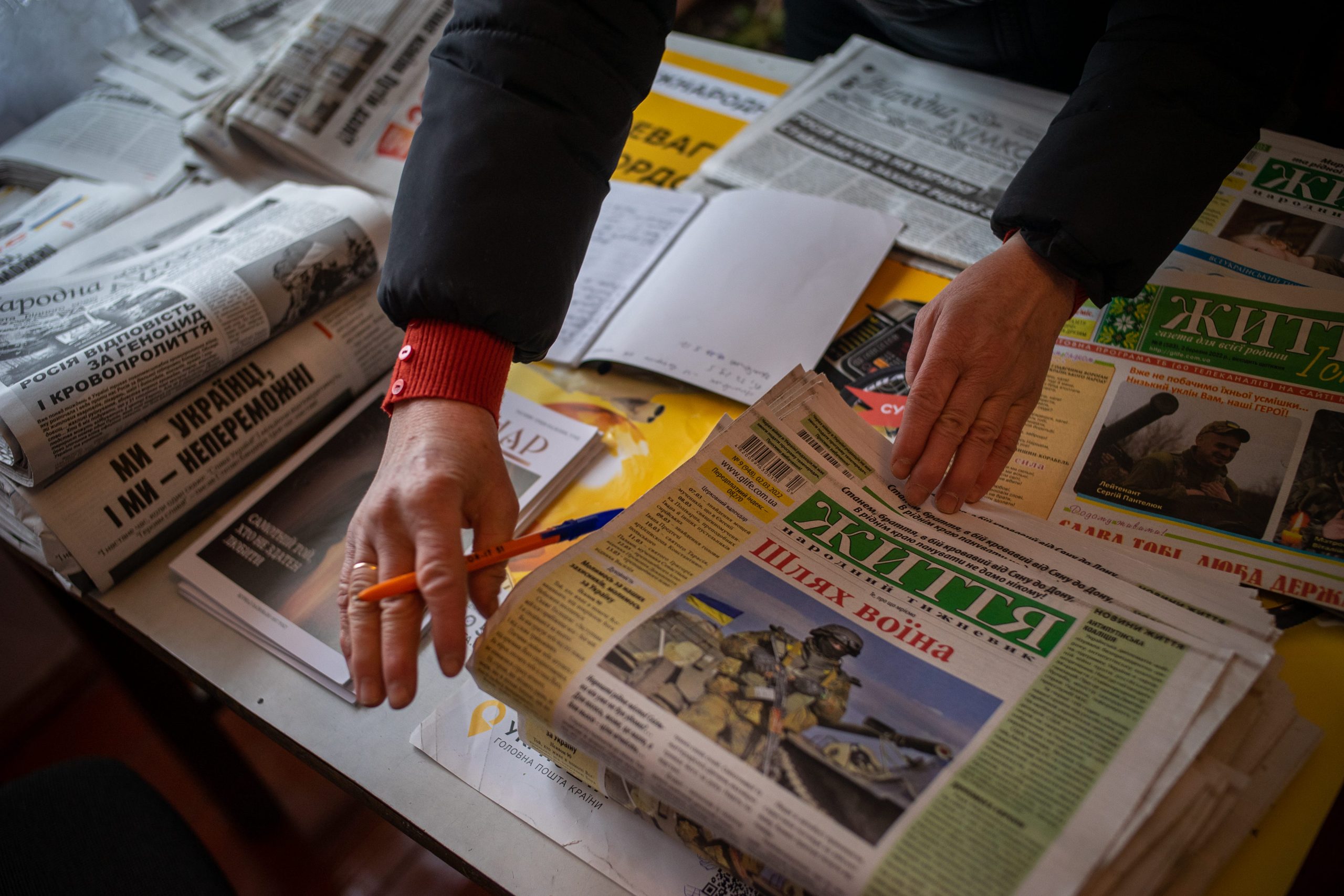
"We're working in Kyiv and Kharkiv, but not all branches. Kharkiv only works within the city as there are no safe routes in and out. Kyiv works day by day as per situation, but we are even accepting international parcels in Kyiv and shipping them through Poland." The first plane restoring deliveries to the US took off from Poland on Mar. 8.
"It's important for our people to receive a note or a package from their relatives abroad. The Postal Service gives the feeling that you can still have a normal life," Smelyansky said.
To that end, Smelyansky asked post offices around the world not to stop sending their mail to Ukraine. "We will deliver it," he assured them.
